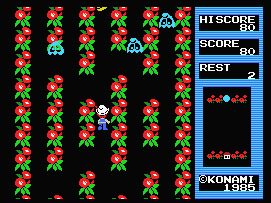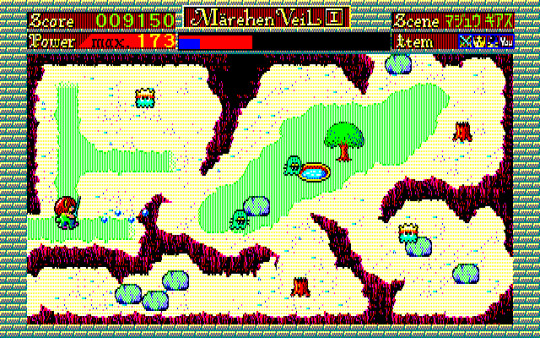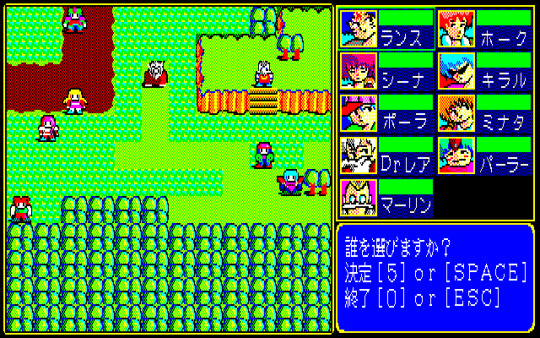#you yourself are in a world of byzantine and rigid hierarchies
Explore tagged Tumblr posts
Text
I feel like it would be nice to acquire a cool military antique while I’m here, like a cool compass or pair of binoculars, but also I feel like a fucking moron for collecting army stuff and the feeling becomes more intense with every passing year
#the further that even the fantasy of military service#let alone the possibility#recedes in the rearview mirror of my life#the more I feel like a moron for nursing any interest in it at all#I suppose I should have lied on the recruiting form#to be honest though even if I'd done it the only way to get any respect in that world is to be like a special forces operator#the circles within circles of that life are staggering to me#the rigid hierarchies among the various services#and then the various branches#and divisions#and so on#like you can't just be an operator who operates operationally because if you're a Navy SEAL people give you shit constantly?#Ivan maybe people giving you shit is just an essential part of life and nobody escapes it#you yourself are in a world of byzantine and rigid hierarchies#albeit one without any gunfights#and that is the object of withering contempt among the tribe in which you grew up#unlike the military which is the only unambiguous road to status for a male#other than being a billionaire I guess#if you're a right wing man you better find yourself a uniform or get rich
38 notes
·
View notes
Text
flat pak

i went to now play this last weekend and had a good time! there was a flatgames room, and a panel, and the latter made me think about some nightmarish circumstance where someone was questioning me about what the point of these things was. the three posts below are all pseudo-answers i sketched out.

1. i like how sexless videogames are, and how bad at representing humanity in general, i like that even hyperviolent games have this wistfulness about them, as if the only way they can grasp the human body is as it comes apart - in some provisional, stateless shape contained in but seperate from the game systems, a ghost, like those mysteriously elaborate and collisionless death animations the enemies in old shooters got before dissolving into goo. or as if they hoped the exuberance of their own approach was enough to break the carapace of the format and let something, anything, seep in from the outside....
the little guys in videogames are a gentler convention, but they're always on the verge of the same dissolution - the sketchiest of outlines, of features, a ball, a shape, with eyes and feet. like drawing yourself with your eyes closed - the crudest and most temporary kind of projection or self-fashioning. staring nervously and chomping as it waddles through the maze, eating things, breaking apart instantly when it bumps into someone, and given an equally temporary name such as walky or go-go. i love this dorkiness, this daydream of the body as a soap-bubble, so alienated that the slightest recognition feels like intimacy.

2. flatgames are 'flat' in the sense of projecting a multi-level videogame hierarchy into a single plane; the archetypical flatgame gesture is being able to walk across the textboxes. rather than systems they represent collections - collections of effects treated as independent of the wider process they'd ordinarily portray, which can then be grouped and moved around seperate from that process. so it's a personal, subjective format in the sense that the new groupings sort of mirror the groupings produced when various external effects are flattened into single moments of subjective experience, of memory. but it's also a personal format just because it's easy to use - because in many circumstances it's easier to just drag and drop text around rather than create a universal system that handles when and how it'll be displayed, as in all those unity horror games that have gui elements just sort of hanging around in space for you to bump into. and i think this is something that kind of grinds interestingly against the idea of videogames as inherently systematic, inherently good at portraying systems - like, in what way are they systematic when it's become easier NOT to be systematic? at what point do those "systematic" features become a mannerism, while the very easiness of bad game design means it starts to cleave more rigorously to the contours of actual material life and practice, to the way we really use computers rather than the ways we'd like to use them?
this is not to say systems don't exist. but their relationship with even the most system-y videogames is weird - to what extent are these games exploring a system rather than expressing a sense of systematicity, an aesthetics of system not dissimilar to those of puzzles, criticism, and the mystery novel? on one hand we know that a lot of systemic elements are hand-tweaked by developers in order to feel less jarring to our impression of the whole (dice rolls being the most common) - on the other we know from previous twitter threads about exactly these kinds of "cheats" that they can outrage players who learn they exist. which suggests it's not any specific quality or experience associated with a game system but the idea of systematicity itself that's being sold -- as indeed with the famous "100 hours of gameplay" tag, which does not express a type of content so much as a promise that this content has been regulated and formatted in ways which allow it to be sold in this very matter-of-fact way. the idea of systematicity as a deliberately conveyed aesthetic impression feels worth investigating, particularly given ten million youtube videos with names like "gun-shot teen DESTROYED with Logic" and "univeral reason under attack: why braingeniousmasculinist should be unbanned from club penguin" - evidently the impression of sanguine impersonality and indifference to the merely "personal" is a highly popular and profitable one online....
in a more material sense, too, we can query this systematicity. a videogame with handdrawn paper graphics is obviously not "de-mystifying" the process of making games, since the physical object had to be digitalised and cleaned up and imported and processed before it could be used. one of the stranger things in videogames is that naivete is a technological affordance - i can use crude handdrawn graphics because the computer has enough memory not to force me to compress it all into 8x8 sprites (unless i really want it to, as with deliberately limited bespoke engines). but at the same time it really is de-mystifying, because it emphasises the extent to which game development takes place at the intersection between multiple different areas of digital technology (not to mention human labour). 3d model textures can be paintings or photographs or heavily treated, processed combinations of the two - the photographs or paintings used can be original or purchased from various weird economies of commercial asset packs - the artistic coordination of those assets can take place over skype or similar with the reference of multiple other digital image files, scavenged from online to give an idea of the total look. i don't mean to suggest that these multiple intersections are so complex that they cease to be "systematic" - but i do think that grasping it as a real system also means coming to terms with the ways in which it can be structurally unsystemisable, like fredric jameson's description of globalization as "untotalizable totality". when the most important features of the discrete operations of a computer are that they take place at a scale and speed no human can replicate, recasting exactly those operation into a human scale can confuse more than it clears up [much like this post].
thinking about videogames more generally as revolving around not an inherent systematicity but rather an image of / desire for the same, around that imagination of systematicity which is bound up with consumer technology as a whole. i feel like at each moment in history this systematicity has some privileged form of social identification associated with it: i've lost count of the pulpy books i've read which had some villainous saint-just analogue, maybe one obsessed with clocks or measuring things, who imposes some cruel and rigid revolutionary "system" on the basically warm and laissez-faire vassals below... system as political imposition. but medieval writers might have connected the same sense of systematicity more immediately with that of the kingdom of god, with the underlying structure which makes those warm laissez-faire moments possible to begin with. sometimes system appears in media as bureaucracy and ritual, sometimes it's as a challenge to bureaucracy and ritual, galileo's "and yet it moves" or those movies where someone comes up with a brilliant new way to win sports matches or sell sub-prime mortgages against all the prevailing wisdom. on the basis of this extremely rough idea, what could we imagine being the privileged form that systematicity appears in the everyday today? not capitalism or high finance, which while systematic can also be too broad or naturalised to appear so in this immediate way... not politics, not the internet. but maybe ON the internet, and for me "system" appears most visibly online in the question of personal information and how it's tracked. all those notifications of websites using cookies clicked through, terms and amendments to terms scrolled past, online shopping histories suddenly reoccuring by ads for the same products you looked at appearing in the background of another site - all these are re-impositions, re-appearances of systemicity through the vague fugue of internet experience. and which pop up in the more public sphere as an ominous black site, with the full scope or implications sealed away behind byzantine layers of corporate procedure and nondisclosure. the sense of system here is one of intransigence, blockage - it's divorced from the idea that knowing the system would give one the power to change it, because here the system is exactly what makes that knowledge impossible in the first place. maybe that sense of the failure of systemic knowledge is connected to the world depicted in flatgames, in which that knowledge no longer exists - niall moody's "the craigallen fire" contains historical information and real places, but the words hang eerily across the digital picture as if unsure how to relate to it, as if coming from a long way away. but the movement away from representational systematicity is a move towards material systemicness, in the clarity and concreteness with which flatgames approach their own practice, so maybe we should consider this withdrawal as strategic - as an effort to build new systems, rather than being pulled into the daydream of the old.

3. part of the pleasure, for me, in making flatgames, was the sense of feeling able to postpone indefinitely some kind of mechanical reckoning - the feeling of being able to use pacing and visual structure to ward off the dread that any minute now i'd have to settle down and make a real game. in a weird way it connects to what i enjoy about very fussy, technical games - grinding in an rpg means deferring the point at which you actually have to begin playing the rpg, both in the sense of being challenged and in the sense of actually having to sit down and learn all the systems, just as savescumming your way through megaman 3 is to giddily skate around the dread prospect of actually playing megaman 3. there is no point where you have to work out what happens if you die or walk off the map, there is no point where you have to say to the player "okay, you have to focus now". the horror of paying attention and the joy of not having to! a moment of those moralist rituals held in temporary suspense, as if time itself has frozen and you're free to walk among it, underneath paused mechanisms that would ordinarily be crushing you... and the awareness of that suspense somehow makes your own delicacy greater, as if one of the machines you wandered through was your own life, and you could hover precariously inside it... a soap bubble, the merest bug-eyed phantom, newly christened something like walky or go-go....

[image credits - street fighter iii: second impact - pippols - space fantasy zone - marchen veil - bandits 9)
37 notes
·
View notes